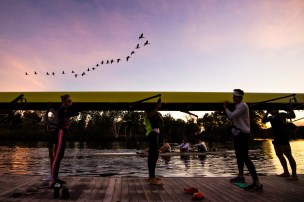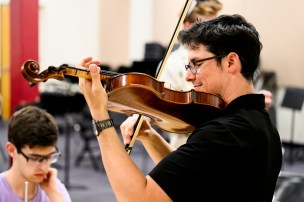Published on
This student spent co-op on an island helping protect sea turtles and other endangered species
Hans Van Der Sande’s semester as an environmental conservation volunteer in Seychelles had him diving with coral and helping sea turtles to safety.
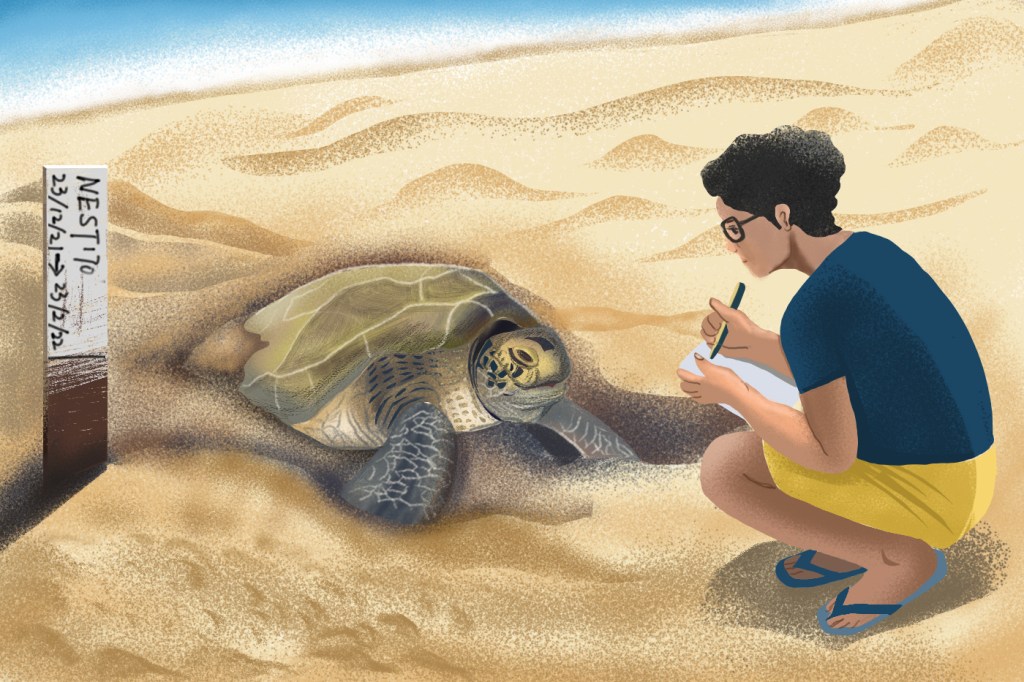
A semester on an island in the Indian Ocean sounds glamorous. But Hans Van Der Sande’s co-op in the Republic of Seychelles, an archipelago nation over a thousand miles off the coast of Africa, was a lesson in conservation.
Van Der Sande, a senior ecology and evolutionary biology major, has been interested in conservation work since he took a gap year interning at a resort in the Philippines and ended up involved in a research project in which he dived three times a day monitoring the local coral population.
“I had a passion for conversation and I still think that’s very important,” he said. “I wanted to pursue it in different ways.”
Van Der Sande ended up getting his co-op at Fregate Island in Seychelles thanks to his previous experience living and working on an island and his diving certificate, which he got when he was younger. They enabled him to help with a marine project tracking coral growth during his time on co-op.
“One of the biggest qualifications was ‘Would you be OK on an island?’” Van Der Sande said. “For me, when I was in the Philippines…there were some days where we just had to hunker down during typhoons and stuff. I gave them that whole story and they said ‘You’ll be fine.’ I got used to it pretty quickly. The type of people that go there are really OK with any sort of living conditions.”
Fregate Island, located in the eastern part of the archipelago, is less than one square mile in size, but is home to two types of endangered sea turtles, over 2,000 giant tortoises, the Seychelles fruit bat and several species of birds including the endangered Seychelles magpie-robin.
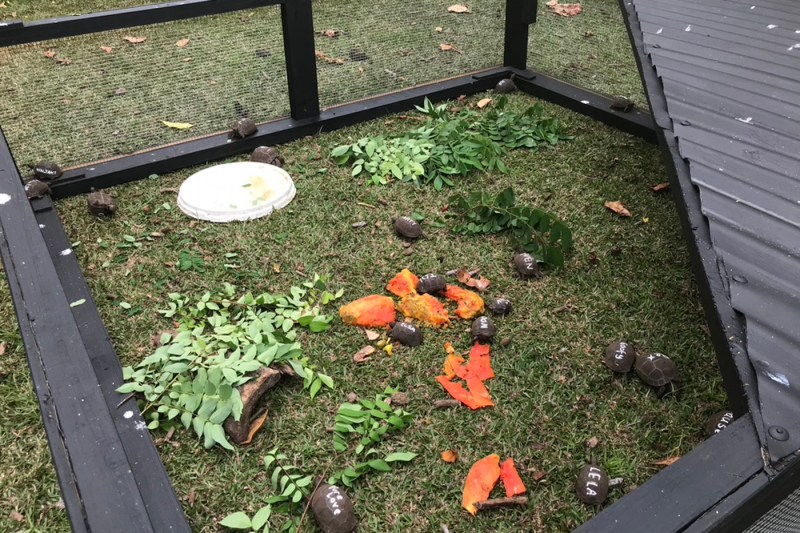
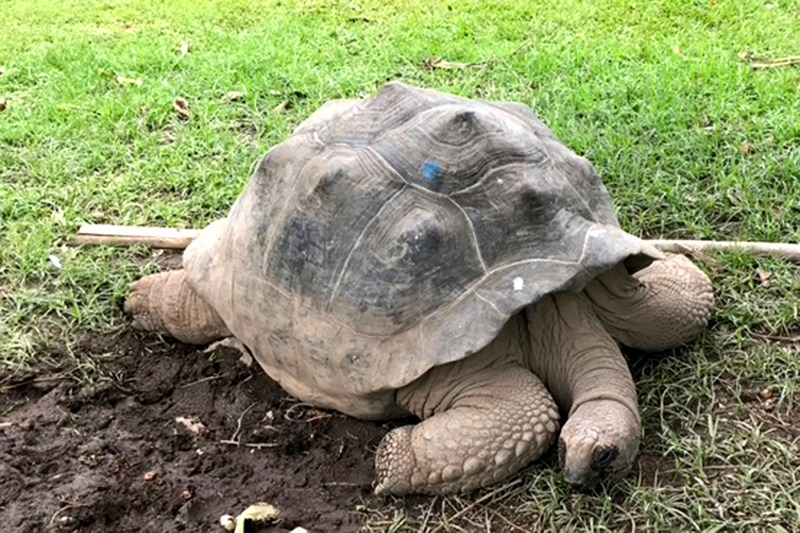
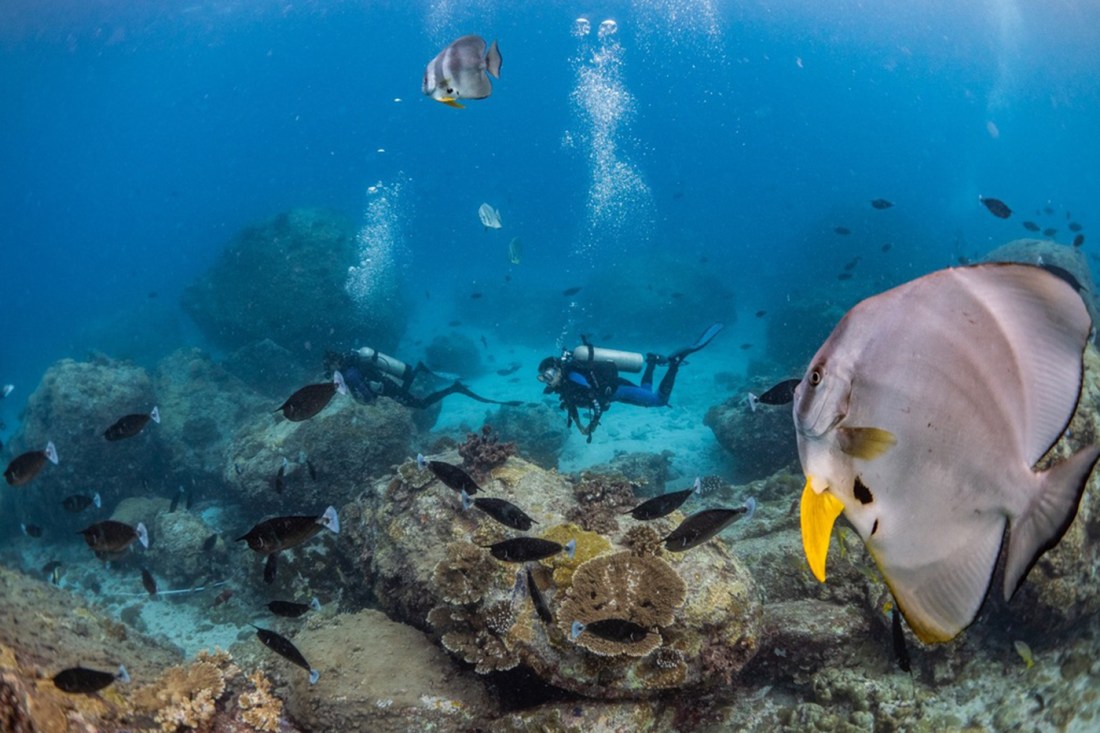
During his semester as an environmental conservation volunteer, Van Der Sande spent his time researching and rehabilitating these populations. His work for the day would depend on the season. Van Der Sande was there in spring 2022, which meant he got to experience turtle-hatching season. Every day, he and his team would mark sea turtle nests with poles with the date so they could return to the spot when the eggs were due to hatch and help the sea turtles get to safety.
“We’re usually there when they’re coming out,” Van Der Sande said. “We deal with that quite well. The only thing that sucks is that once the turtles get into the water, you can’t do anything…As the turtles are swimming away, you see like eight shark fins coming up.”
Van Der Sande also helped protect the island’s giant beetle population which helps eat decaying trees. The team would do a “capture and recapture” count where they’d capture the beatle, mark them with a tiny marker, and then come back the next day to see whether new ones came to the spot.
“They’re like the pandas of insects,” he said. “They’re really bad at mating and they’re not doing great with the environment. So we had to really take care of them. We would do lots of counts on them.”
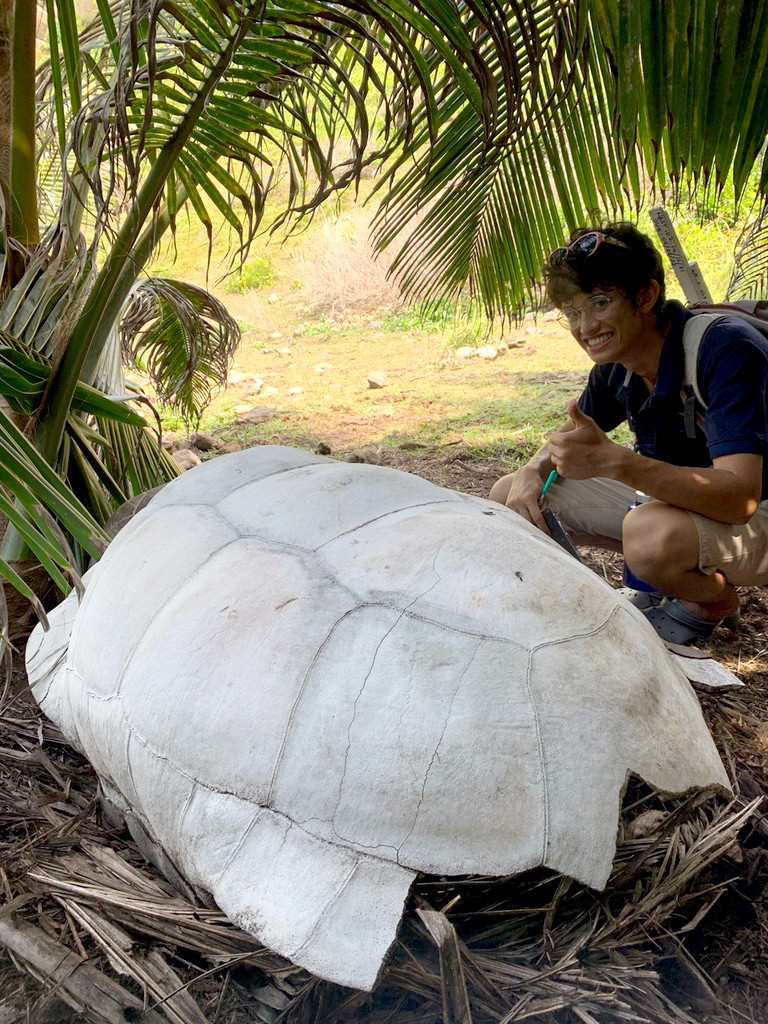
The animals also made interesting neighbors: Van Der Sande said one of the biggest adjustments to life on the island was the noise the tortoises made while mating which often woke him up in the mornings. He also once had a baby bat take up residence with him and had frequent encounters with geckos, centipedes, and scorpions.
“What was really nice was that sometimes you can just look outside (and) watch the giant tortoises and birds interact with the people of the island,” Van Der Sande said.
Van Der Sande came back from co-op with a new perspective on his potential career path.
“When I was younger, I believed that conservation needs to be done at the local level,” Van Der Sande said. “But after the co-op, (I think) climate change is the bigger issue. It’s hard to fight climate change at a local level when it’s such a global issue. So my sights on how conservation should be done have changed a little bit. I want to work on conservation at a larger level, funneling more money into it, and also work in policy and trying to stop these really big corporations from exhausting the Earth’s resources and worsening the global climate change problem.”
Erin Kayata is a Northeastern Global News reporter. Email her at e.kayata@northeastern.edu. Follow her on X/Twitter @erin_kayata.



